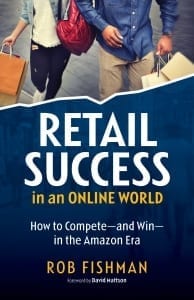How to Tell an Amateur Retail Salesperson From a Professional

“Hi, can I help you?”
“Is there anything I could show you?”
“Do you need anything?”
“Did you want to see anything?”
These are hallmarks of retail sales amateurs. Notice that all of these questions are invitations to give a familiar, too-often-heard, two-word answer: “No, thanks.” Variations include: “No, thanks; just looking,” and “All set.” No real questioning mastery here. Bottom line: No conversation. Which, to be fair, is an outcome the amateur is used to producing.
That’s how it is with questions that are built around words such as can, is, do, does, will, could, and should. Technically they’re called “closed-ended” questions. There may be a time and opportunity to use these types of questions however true professionals in retail sales do not use them to open a conversation.
You may have found yourself giving the same “No, thanks” response to any salesperson who asks you a closed-ended question. Notice what happens when you do. The protective defense walls go up immediately between the retail salesperson and the buyer. You are locked down. No one can get to you. Now, from this locked position of defensiveness, you will stay in say-almost-nothing mode. You may even make a misleading statement or two. Who knows?
Although you may assume you already know the reasons behind this defense, it makes sense to look closely at the motivations in play here. I believe customers raise this defensive posture to protect themselves from presumed manipulative behavior from the salesperson. They have a good reason for doing so: they don’t want to be sold to. This ties into a classic selling rule from David Sandler: “Buyers love to buy yet hate to be sold.” Food for thought.
Another example of amateur retail selling can be seen whenever you observe a pushy, highly assertive, and all-too-aggressive salesperson who sees one and only one potential outcome to a conversation with a prospect: Dollar signs. They say all the right things in an attempt to convince the customer to buy their stuff. This type of salesperson is everywhere. Take a moment to think more closely about what’s happening in such exchanges.
The salesperson manipulates. They cajole. They bombard. No matter what the customer’s reasons to buy, their approach is to say and do everything they can to convince the customer that their solution, product, or service has the best value, is the fastest, is the coolest, is the prettiest, is the most amazing.
This is not so much a conversation as a situation in which customers find themselves standing in front of an open firehose. These are amateur salespeople. But it’s worth noting that they can be very creative in their approach, using all kinds of information about what they are selling and even asking plenty of rapid-fire questions to accomplish the all-important goal of closing the deal.
Don’t let the presence of questions fool you — no nurturing is taking place. Although this may be a memorable experience for the customer or prospect, it might not be the ideal memory you want the person to share with friends and family.
But isn’t this what salespeople are supposed to do? Sell? The answer is yes — but the process of selling has to be mutually engaging and mutually beneficial for both sides. The firehose approach fails that test. Even though it may sometimes produce a close, you have to ask if it will produce a glowing positive recommendation to family and friends.
Remember: A customer who has had an unpleasant buying experience, due to a pushy, inattentive, or otherwise nurturing-impaired salesperson, will tell far more people about that experience than someone who enjoyed a positive buying experience! As we in the retail sector ponder the best ways forward from the current crisis, we should consider the possibility that an untrained, amateur retail salesperson may end up doing considerably more harm than good.
About the Author














Leave a Reply
Want to join the discussion?Feel free to contribute!